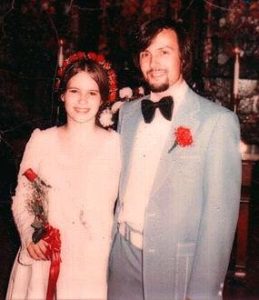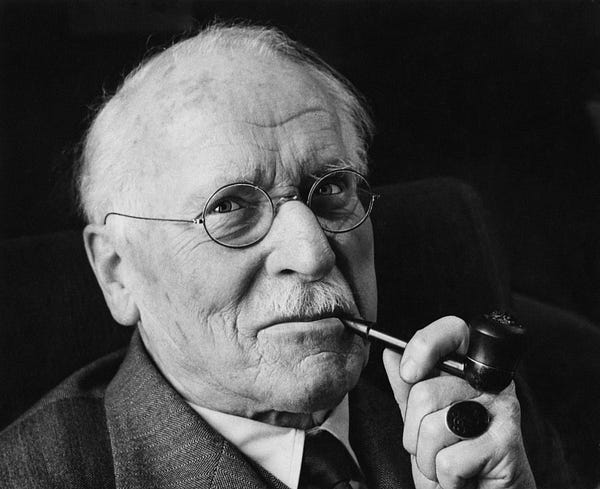 I was pondering this morning how personality types have such different ways of handling hurt and pain. I don’t know whether much has been written on this subject, but it might be worth looking at through the lens of psychological type letter clusters, and also placed within the context of the four temperament quadrants to be better understood. And I suggest this order of ops, despite my training in and passion for David Keirsey’s 4 Temperaments, which I believe are the way that personality typing should proceed to obtain the best, most accurate results and the clearest understanding.
I was pondering this morning how personality types have such different ways of handling hurt and pain. I don’t know whether much has been written on this subject, but it might be worth looking at through the lens of psychological type letter clusters, and also placed within the context of the four temperament quadrants to be better understood. And I suggest this order of ops, despite my training in and passion for David Keirsey’s 4 Temperaments, which I believe are the way that personality typing should proceed to obtain the best, most accurate results and the clearest understanding.
As an NT Rational, (iNTj) I experience things linearly in time (J) with my dicem-slicem analytical thinking, (T) which is paired to extremely big picture thinking (NT)- making for a pretty lethal combination when I’ve been hurt. How this plays out in me can work like this…
If someone said something hurtful about me that I think is untrue and unfair, I might take and apply to it all kinds of imagined scenarios and draw broad conclusions (NJ) — like that they’ve probably always felt this way and how stupid it was of me that I thought they ever really respected or liked me, yadda yadda. I frequently take a little ‘blade’ and turn it into a machete that I continually fall on, with imagined worst case scenarios playing over and over in my mind. Despite that I may have believed that what was said was untrue initially, this wouldn’t prevent me from condemning myself obsessively, because I MUST consider all possibilities ! (iNTj) No doubt many people do these things , but I suspect that no combination can throw the baby out with the bath water as well as an iNTj, from my experience. We have lethal weapons at our disposal and can direct them at both ourselves and others with great efficiency.
It’s also my observation that there are many Ns, particularly those who are introverts, who are highly sensitive. I like to think about introverted iNtuition working like a satellite dish receptor that seems to receive the subtlest nuances of others’ emotions – and even intentions – to some degree. They/ we become wounded very, very easily and tend to interpret and dissect others’ motives, which ‘justify’ our getting even. Being a TJ is the ticket to quick judging and blaming ourselves and others.
As I described earlier, Ns who are also Js, experience things in a linear, finite timeline, while simultaneously swimming around within the big picture iNtuitor universe. Unlike Ns who are Ps, the linear micro becomes joined to the universal macro in a very unique way. Our memories are able to recall detailed linear events within a very broad context. But here’s the killer: everything we experience in that way will be ‘filed’ together with our intuitive judgment (NTj) which has analyzed and ‘determined’ its meaning, and can then play judge. These skill-sets become highly developed, in my observation, because all the functions working together can prove to be very accurate and trustworthy over time. With much experience, our ability to accurately intuit, predict and then ascribe motive to others is magnified from having analyzed and interpreted things for their underlying meaning. Add to this to the deep EMOTIONAL wounds driving the process (hurt, anger, getting even, etc.) and we are looking at powerful weapons, make no mistake.
I have been slow on the uptake in seeing how my interpreting things that my family members have said or done has been extremely presumptuous and wrong! It rarely occurred to me when my children were growing up that they did not think, feel or proceed as I would have. No one in our family has the cause-and-effect process of motive and action that I presumed they had, which was based on the erroneous conclusion that everyone operates from the same calculating motives, forethought, judgment and assumptions that I do! We iNTjs can make fine, wise judges – and conversely, have the raw material to mastermind great evil.
This, I think, characterizes one aspect of what David Keirsey calls the “Pygmalion Project”. So, in response, I am working to become more like my opposite type, an SP Artisan ESFP who sees the good in everything first and takes things at face value, rolls with the punches and is universally popular. Well I can dream, can’t I?
Thank you for sharing your genius and for your incredible contribution, David W. Keirsey!
Uncertain of your type or someone you know?
We invite you to take our Free Personality Test here
 Looking back on my own life through the lenses of both type and David Keirsey’s four temperaments, I could see the genius of the system everywhere. I had clearly exhibited traits of an NT child very early: ingenuity, inventiveness and nonconformist tendencies, as outlined in detail in Keirsey’s book, Please Understand Me II. I have no memory of being aware or concerned about what others thought of my marching to the tune of a different drummer. I do remember finding fault with my teachers’ job performances as early as elementary school. When they seemed to underestimate my abilities, rather than feeling daunted or discouraged, I chalked it up to their lack of intelligence or judgment, although as an introvert, I kept it to myself. And although I did well in school, it impeded my self directed learning, was terribly boring, and I disliked it immensely.
Looking back on my own life through the lenses of both type and David Keirsey’s four temperaments, I could see the genius of the system everywhere. I had clearly exhibited traits of an NT child very early: ingenuity, inventiveness and nonconformist tendencies, as outlined in detail in Keirsey’s book, Please Understand Me II. I have no memory of being aware or concerned about what others thought of my marching to the tune of a different drummer. I do remember finding fault with my teachers’ job performances as early as elementary school. When they seemed to underestimate my abilities, rather than feeling daunted or discouraged, I chalked it up to their lack of intelligence or judgment, although as an introvert, I kept it to myself. And although I did well in school, it impeded my self directed learning, was terribly boring, and I disliked it immensely. In the realm of my private vocal teaching of high school and college students, I have found knowledge of Myers-Briggs (MBTI) personality types to be extremely helpful. My work often requires the use of imagery to obtain a desired sound. Despite medical advances allowing for viewing the larynx and for understanding the mechanics of vocal sound production, my experience has been that it’s quite ineffective to try to communicate the ‘how’ of correct vocal production using primarily technical language. Bridging the gap between the science and the art form by using symbolic language and also tapping into the often very delicate teen psyche calls for a broad palette of metaphor, imagery, humor and a great deal of outside-the-box ingenuity.
In the realm of my private vocal teaching of high school and college students, I have found knowledge of Myers-Briggs (MBTI) personality types to be extremely helpful. My work often requires the use of imagery to obtain a desired sound. Despite medical advances allowing for viewing the larynx and for understanding the mechanics of vocal sound production, my experience has been that it’s quite ineffective to try to communicate the ‘how’ of correct vocal production using primarily technical language. Bridging the gap between the science and the art form by using symbolic language and also tapping into the often very delicate teen psyche calls for a broad palette of metaphor, imagery, humor and a great deal of outside-the-box ingenuity.
